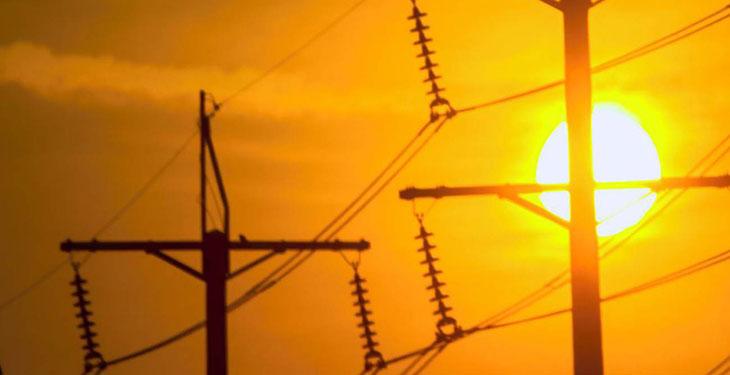The US Trade and Development Agency (USTDA) and Bulgaria’s Transmission and System Operator (ESO) signed an agreement in Sofia on Monday for a $1.5 million grant to fund the feasibility study for the corridor energy East-West, transmits BTA.
The agreement was signed in the presence of the Bulgarian Prime Minister, Dimitar Glavchev, the Bulgarian Energy Minister, Vladimir Malinov, and the US Ambassador, Kenneth Merten, according to Agerpres.
This project, initiated by ESO, aims to connect the electricity transmission systems of Turkey, Bulgaria, Greece, North Macedonia, Kosovo, Albania and Montenegro, with the option to include Italy as well.
The expansion of cross-border electricity transmission capacities and the possibility of real-time exchanges of energy produced from renewable sources in the region are crucial for the efficient use of green energy and the achievement of decarbonization and green transformation goals, the Bulgarian Government informed.
The director of ESO, Angelin Tsachev, and the director of USTDA, Enoh T. Ebong, signed the agreement on Monday at the headquarters of the Council of Ministers in Sofia.
If the study confirms the project’s feasibility, the initiative will increase Bulgaria’s cross-border electricity transmission capacity by more than 2,000 MW.
After the signing ceremony, the Minister of Energy, Vladimir Malinov, said that the construction works of pumped storage hydroelectric plants at the Dospat and Batak dams could last 4-5 years, provided that the projects are structured correctly , and all necessary efforts are made.
“We are working with the World Bank, the European Investment Bank, as well as the USTDA to implement new electricity storage projects. These include the development of the Dospat and Batak dams, as well as the restart of the Chaira pumped storage hydroelectric plant,” said Malinov.
He emphasized that electricity storage is essential to make consumers feel the benefits of the reduced costs of photovoltaic and wind energy.
“Against the background of the advance of renewable energy in the energy mix of the countries of South-Eastern Europe, it is very important to have a rapid development of the electricity infrastructure so that the green energy produced in the countries of the region can be shared and used efficiently”, he said. Angelin Tsachev. “Meetings with system operators from Turkey, North Macedonia, Kosovo, Albania, Montenegro, Serbia and Romania confirmed our point of view that there is a need to build such a corridor,” added Tsachev.
The East-West energy corridor starts in Turkey, passes through Bulgaria and, further, through North Macedonia, Kosovo, Albania, Montenegro, to Italy.
The feasibility study, which will be carried out by the consulting firm Black and Veatch, would demonstrate the viability and necessity of building four new electricity transmission lines, in order to increase the transmission capacity to Romania, Greece, Turkey and North Macedonia . As a result, more renewable capacity will be able to connect to the grid, Enoh T. Ebong pointed out.
According to the USTDA director, Bulgaria’s energy transition means building the necessary infrastructure and strengthening regional energy cooperation by expanding green energy transport capacity.
Also, USTDA is willing to support the modernization of the thermal power plant in Sofia and is already having discussions in this regard with the City Hall of Sofia, added Enoh T. Ebong.
So far, USTDA has financed more than 50 renovation projects in the fields of energy, transport and telecommunications in Bulgaria.
US Ambassador Kenneth Merten said this would be a very large project, involving the modernization of Bulgaria’s electricity transmission system. The objective is to have more renewable energy and a more modern and safer energy network, added Merten. Also, the feasibility study will prepare the ground to open even more opportunities for the export of energy to Turkey, North Macedonia, Greece, Kosovo, Montenegro and, possibly, Italy.
The Bulgarian Minister of Energy, Vladimir Malinov, described the signing of the agreement as “a new step in the fruitful cooperation and development of relations between Bulgaria and the USA”.
“In USTDA we have a reliable partner whose expertise and professionalism are indisputable assets for the development of our relations and projects, as well as for the development of the Bulgarian energy sector,” said the Minister of Energy. “After this project is implemented, we will achieve an increase in energy security not only for Bulgaria, but also for the entire region. It is also a new step in the process of transforming the energy sector in Bulgaria. It will allow us to change over time of electricity between the countries of the region, which will allow the stabilization of electricity markets. Last but not least, it will allow the transport of green energy from large production facilities and ensure the consumption of electricity throughout the region,” added Malinov.
